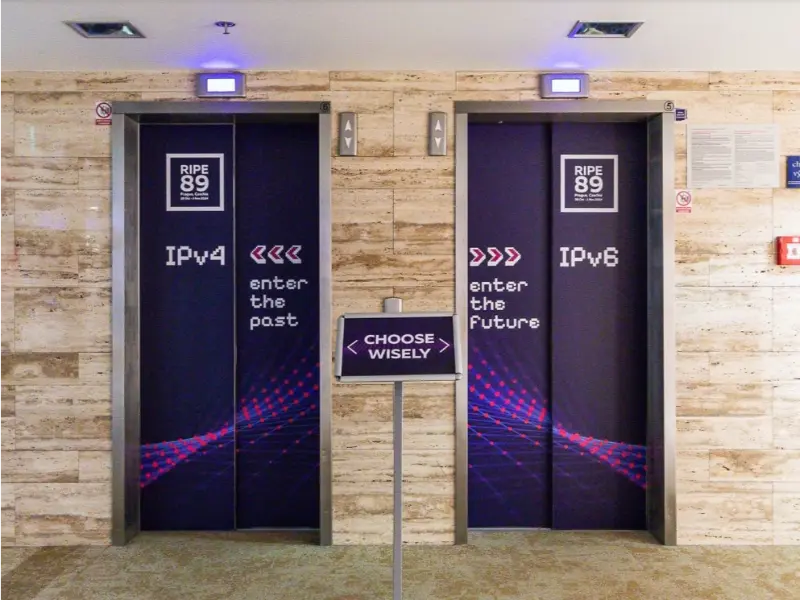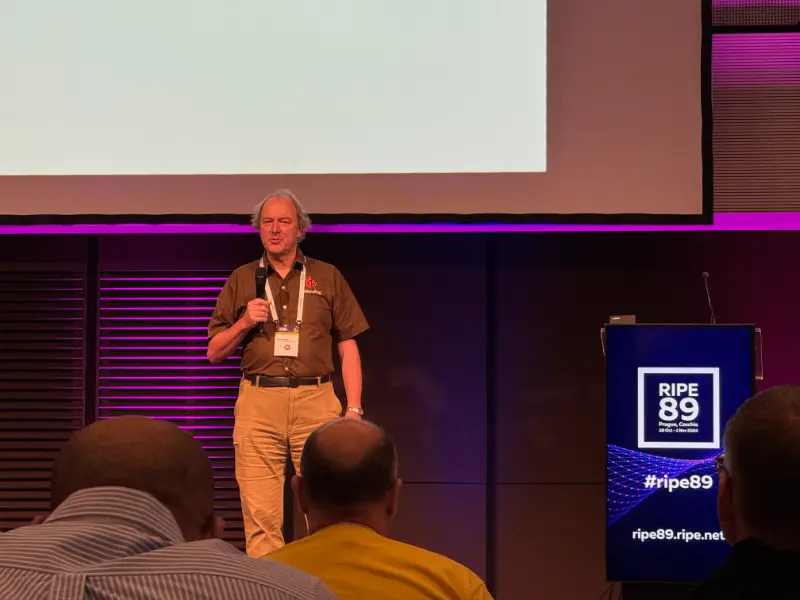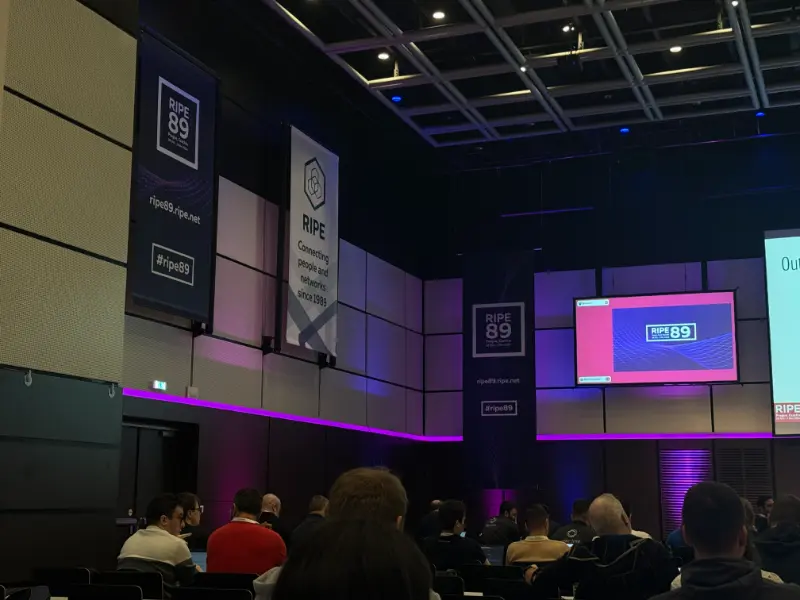- RIPE 89 in Prague features discussions on network management, fibre optic disputes, and IPv6 adoption.
- Fredy Kuenzler and Geoff Huston highlight challenges with FTTH competition and security measures in Internet infrastructure.
- Sky UK’s Richard Patterson explains IPv6-only deployment, while Benoit Claise and Mirja Kühlewind discuss evolving network management operations.
RIPE 89 took place in the captivating city of Prague this week, marking the fourth time the RIPE community has gathered here for discussions on the evolving landscape of Internet operations. The conference, which began on 28 October, welcomed attendees from across the globe to dive into topics ranging from network management and fibre optic disputes to the complexities of IPv6 adoption. As RIPE Chair Mirjam Kühne noted during the opening plenary, Prague has previously hosted RIPE meetings where key topics such as the last /8, CIDR, and even IPv7 allocation were discussed.
Also read: RIPE 88 kicks off in Kraków with questions around RIPE’s future

The first day of RIPE 89 featured a variety of engaging sessions that delved into significant issues. Local host Ondřej Filip kicked things off with a warm welcome and an amusing explanation of Czech holidays, describing the end of communism now celebrated by capitalism. Fredy Kuenzler then took the stage to share insights on Swiss governance and its influence on fibre-to-the-home (FTTH) projects, covering the intricacies of the ‘Glasfaserstreit’ (fibre optic dispute) and the ongoing antitrust case against the monopolisation of the Swiss fibre network. Geoff Huston, who presented remotely due to an accident, explored why security measures like DNSSEC and RPKI have not gained significant traction, even after nearly three decades of effort.

Also read: Martin Winter, NetDEF: Open source software should be much more widely used
The second plenary session saw Richard Patterson of Sky UK Ltd explaining IPv6-only deployment with IPv4-as-a-Service (IPv4aaS) using MAP-T. The presentation led to an informative discussion on the challenges and possibilities of moving to IPv6 while retaining compatibility with IPv4. Following Richard, Benoit Claise from the IETF, joined by Mirja Kühlewind, introduced the next era of network management operations and recounted the lessons from a 2002 workshop that influenced developments in network management. The day concluded with the BCOP Task Force session, featuring discussions on the resilience of Ukrainian networks during wartime and examining the challenges around defining consensus in the RIPE community.
FTTH Disputes and the Push for Network Security
Fredy Kuenzler’s talk on Swiss fibre infrastructure highlighted how governance plays a pivotal role in ensuring fair competition. The fibre optic dispute in Switzerland, also known as ‘Glasfaserstreit,’ was a central topic, as Kuenzler described the ongoing battle to prevent monopolisation of the network. His presentation emphasised the need for vigilance in maintaining open access to network infrastructure.
In a similar vein, Geoff Huston’s presentation touched upon the challenges of implementing robust security measures like DNSSEC and RPKI. Despite decades of effort, these security protocols face resistance in adoption, which raises questions about the willingness of operators to prioritise security. Geoff’s experience, presented remotely after a biking accident, brought a personal touch to the ongoing struggle for improving the Internet’s security posture.
IPv6 Adoption and Future Network Management
Richard Patterson of Sky UK Ltd took on the topic of IPv6-only networks, explaining the concept of IPv4-as-a-Service (MAP-T) as a bridge for legacy IPv4 requirements. Patterson’s exploration of IPv6 transition addressed both technical challenges and operational solutions, sparking an engaging Q&A session with the audience.
Benoit Claise from the IETF and Mirja Kühlewind discussed the evolution of network management and the importance of learning from the past to shape the future. They referenced RFC 3535 and the early efforts of the IETF to address network management requirements, suggesting that current challenges in network operations demand even more collaborative and innovative approaches.
Resilience in Ukraine and Community Consensus
The BCOP Task Force highlighted recent efforts to support Ukrainian network operators in the context of ongoing conflict. The initiative, called NOGUA, has been instrumental in maintaining network resilience on the frontlines and successfully held its first meeting to build support among operators. This effort underlines the importance of community-driven initiatives in preserving Internet connectivity under challenging circumstances.
Another important discussion during the session focused on defining “consensus” within the RIPE community. While it is often clear when participants “agree to disagree,” determining when full agreement is reached remains challenging. The BCOP Task Force called for input from the community on how to document and define consensus, a critical aspect of RIPE’s decision-making process.

